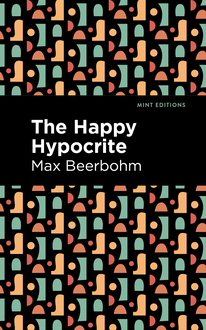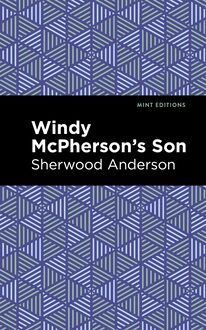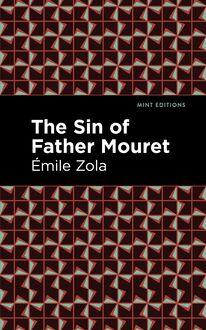-
 Univers
Univers
-
 Ebooks
Ebooks
-
 Livres audio
Livres audio
-
 Presse
Presse
-
 Podcasts
Podcasts
-
 BD
BD
-
 Documents
Documents
-
- Cours
- Révisions
- Ressources pédagogiques
- Sciences de l’éducation
- Manuels scolaires
- Langues
- Travaux de classe
- Annales de BEP
- Etudes supérieures
- Maternelle et primaire
- Fiches de lecture
- Orientation scolaire
- Méthodologie
- Corrigés de devoir
- Annales d’examens et concours
- Annales du bac
- Annales du brevet
- Rapports de stage
La lecture à portée de main
Vous pourrez modifier la taille du texte de cet ouvrage
Découvre YouScribe en t'inscrivant gratuitement
Je m'inscrisDécouvre YouScribe en t'inscrivant gratuitement
Je m'inscrisEn savoir plus
Vous pourrez modifier la taille du texte de cet ouvrage
En savoir plus

Description
Rigby’s Romance (1921) is a novel by Joseph Furphy. Written under his pseudonym “Tom Collins,” Rigby’s Romance is a sequel of sorts to Such is Life, a unique and challenging story that took decades to achieve a proper audience. Earning comparisons to the works of Melville and Twain, Furphy’s novel is considered a landmark of Australian literature. “Just as a bale of wool is dumped, by hydraulic pressure, to less than half its normal size, I scientifically compressed something like twenty-four hours' sleep into the interval between 9 p.m. and 7 a.m. Then a touch of what you call dyspepsia and I call laziness, kept me debating with myself for another swift-running hour.” Between such beguiling narration and lively conversations with the characters he meets on his travels through the Australian outback, Tom Collins presents himself as a philosophizing everyman, a prototype of such characters as Joyce’s Leopold Bloom and Beckett’s Molloy. Journeying in search of his friend Jefferson Rigby, a gentleman and adventurer like himself, Collins reflects on their history together and longs for his company. When the two meet up, they engage in a long discussion on politics and the nature of humanity, touching on topics as strange and diverse as Australia’s legendary wildlife. With a beautifully designed cover and professionally typeset manuscript, this edition of Joseph Furphy’s Rigby’s Romance is a classic work of Australian literature reimagined for modern readers.
Sujets
Informations
| Publié par | Mint Editions |
| Date de parution | 08 juin 2021 |
| Nombre de lectures | 0 |
| EAN13 | 9781513293974 |
| Langue | English |
Informations légales : prix de location à la page 0,0550€. Cette information est donnée uniquement à titre indicatif conformément à la législation en vigueur.
Extrait
Rigby’s Romance
Joseph Furphy
Rigby’s Romance was first published in 1905.
This edition published by Mint Editions 2021.
ISBN 9781513291123 | E-ISBN 9781513293974
Published by Mint Editions®
minteditionbooks.com
Publishing Director: Jennifer Newens
Design & Production: Rachel Lopez Metzger
Project Manager: Micaela Clark
Typesetting: Westchester Publishing Services
C ONTENTS P ROLOGUE I II III IV V VI VII VIII IX X XI XII XIII XIV XV XVI XVII XVIII XIX XX XXI XXII XXIII XXIV XXV XXVI XXVII XXVIII XXIX XXX XXXI XXXII XXXIII XXXIV XXXV XXXVI XXXVII XXXVIII XXXIX
P ROLOGUE
W hilst conveying my own unobtrusive individuality into Echuca on a pleasant evening in the April of ’84, I had little thought of the delicate web of heart history which would be unfolded for my edification on the morrow. My mind was running rather upon the desirableness of a whole bag of chaff for my two horses; a satisfying feed for my kangaroo dog (which is implying more than most people wot of); and a good sleep for myself. I would have been prepared to aver that I was merely bound for Yarrawonga, via Echuca, on business of my own; whereas the smoothly—running Order of Things had already told me off as eye-witness and chronicler of a touching interlude—a love passage such as can befall only once in that one life which is each person’s scanty dividend at the hand of Time.
Making straight for my customary place of sojourn—namely, Mrs. Ferguson’s Coffee Palace—I helped the landlady’s husband to unsaddle and feed my horses; after which, I caused that unassuming bondman to bring about twenty lbs. of scraps for Pup, whilst I chained him (Pup, of course) in an empty stall. Then, with six or eight words of explanation and apology to Mrs. Ferguson, I sought my usual bedroom, and, shedding all my garments but one, threw myself into collision with that article of furniture which has proved fatal to some better men, and to a great many worse.
Here an opportune intermission of about ten hours in the march of events affords convenience for explaining the purpose of my journey to Yarrawonga. The fact is that I object to being regarded as a mere romancist, even as a dead-head speculator, or dilettante reporter, of the drama of life. You must take me as a hard-working and ordinary actor on this great stage of fools; but one who, nevertheless, finds a wholesome recreation in observing the parts played by his fellow-hypocrites. (The Greek “hupokrisis,” I find, signifies, indifferently, “actor” and “hypocrite.”)
I was booked for one of those soft things that sometimes light on us as gratefully and as unaccountably as the wholesale rain from heaven upon the mallee beneath. John C. Spooner, Rory O’Halloran and I had just bought the Goolumbulla brand. Or rather, the manager, Mr. Spanker, had given us the clearing of the run under certain conditions, one of which was the payment of £100.
Goolumbulla—centrally-situated in that wilderness between the Willandra and the Darling—had been settled for about five years. Six hundred head of cattle had originally been placed on the run, to the disgust and exasperation of Mr. Spanker, whose bigoted faith in the evil-smelling merino admitted no toleration for any other kind of stock. His antipathy was reasonable enough in this instance, for these were warrigals, even as scrub-bred cattle go. You know the class—long-bodied, clean-flanked, hard-muscled, ardent-eyed, and always in the same advanced-store condition. They had been wild enough when first brought from the ranges of the Upper Lachlan, and Goolumbulla was just the sort of country to accelerate their reversion to the pre-domesticated type. At the time I speak of, they could barely endure the sight of a man on horseback. As for a man on foot, they would face anything else on earth to get away from him; and if they couldn’t get away, that man might either betake himself to his faith, or stand on guard. Which latter alternative sounds so dishonestly vague and non-committal that literary self-respect demands a slight digression.
To deal with fear-maddened cattle in confined spaces—as in drafting or trucking—the infantry man requires an alert eye, a cool head, and a suitable stem of scrub, terminating in a nasty spray of leafless twigs; also his flank and rear must be covered, in order to confine the enemy to a frontal assault. These conditions being fulfilled, the operator can reserve his mortal preparation for some future emergency, though it would, perhaps, be as well to abstain from anything in the nature of language until the draft is put through. A handy piece of brush, judicially presented, will check the charge of any steer. The animal will try to get round the obstruction, but he won’t attempt to break through.
Here, by the way, I may seize an opportunity of further disturbing the congested ignorance of the bookish public by noticing Sir Walter Scott’s misapprehension of the bovine temperament, as displayed in “The Lady of the Lake.” You remember how the milk-white bull—“choicest of the prey we had, when swept our merry men Gallangad”—is depicted as fiery-eyed, fierce, tameless and fleet, to begin with.
“But steep and flinty was the road.
And sharp the hurrying pikemen’s goad;
And when we came to Dennan’s Row.
A child might scatheless stroke his brow.”
Stockman will conclude either that the child would be an accomplished matador in disguise, or that Scotch cattle have some peculiar way of reasoning out a new situation.
Nor did the Goolumbulla brand entertain any Scotch idea respecting the advantageousness of southward emigration. A draft, started for Victoria, was like a legion of evil spirits evicted from their haunt. As they went through dry places, seeking rest and finding none, the frenzy of nostalgia, or home-sickness, aggravated by chronic insomnia, made them harder to hold than quicksilver. Their camp was liable to spontaneous eruption at any hour of the night; and then it would be as easy to steady a cyclone as to ring the scattered torrent which swept through the scrub, like a charge of duck-shot through a wire fence.
Drovers of superhuman ability and profane address had at different times taken away three drafts; but none of these professors had ever besieged the station for a second contract. Indeed, the last drover, though as vigilant, as energetic, and as prayerful as any on the track, had found himself with about forty head left out of two hundred by the time he had crossed the first fifty miles. His horses being completely played out in limiting the leakage even to this proportion, he had sacked his three or four men, and had sullenly escorted the remnant of his draft back to their beloved wilderness. The absconders found their way home in batches, franked by the boundary men of intervening paddocks, who willingly made apertures in their fences to speed the parting guests.
But now Goolumbulla had changed owners; and the new firm had authorised Mr. Spanker to get rid of the cattle at any price and stock up with sheep.
One of the Goolumbulla boundary riders was an old friend of mine. This Rory O’Halloran—better known as Dan O’Connell—was a married man. By nature dreamy, sensitive and affectionate, the poor fellow had a few months previously sustained a blow which left him in a trance of misery. His only child—a fine little girl five or six years old—had got lost in the scrub, and had been found too late. Rory had settled down patiently and submissively to his routine work again, but the memories and associations of his home, though precious while the sense of bereavement was fresh, had in time become intolerable. For such afflictions as his, there is no nepenthe, and the only palliative is strenuous action.
Hence Rory’s nature, recoiling in unconscious self-defence from the congealing desolations of Memory, craved such hardship and distraction as would be limited only by physical endurance. And instinctively perceiving that the Goolumbulla cattle were quite competent to meet his requirements, he had talked the matter over with Mr. Spanker, and provisionally engaged to buy the brand for £100. He proposed me as an associate. Spanker, in seconding the motion, suggested John C. Spooner, professional drover, as a third co-operator. Seconded, in turn, by Rory, and carried on the voices. The station stockkeeper had then been approached on the subject, but he washed his hands of the whole business. He darkly predicted calamity to the enterprise and insolvency to the station, as a consequence of such “blanky, flamin’, jump-up greed for a bit of wool.”
Then followed hasty and copious correspondence between Rory, Spooner, and myself. Everything went without a hitch. The preliminaries were soon arranged. For my own part, not being blessed by Nature with the saving grace of thrift (“saving grace” is good), I had no cash reserve. Spooner was in a similar state of sin, for, in spite of his almost insulting efficiency, he was constitutionally unfortunate. But Rory had about £300 in the bank at Hay, and he was prepared to finance the undertaking.
The arrangement was this: Spooner was to enclose with a strong wire fence each tank from which the cattle were accustomed to drink, leaving the lower wire high enough to admit sheep. An open gateway would be left in each fence until everything was ready. Then the gaps would be closed, and the cattle, shut out from water, would hang round the tanks, tailed and humored by our party, till the whole brand was collected. Meanwhile, the three of us would jointly sign a bond for the £100—which, by the way, was merely a nominal price for the draft, and immediately make a start. The poor dumb beasts would certainly be thirsty to begin with, but this was nothing when you consider how much worse they would be by the time they reached the next available water.
No one had any clear notion of how many head might be collected, but we counted on something over four hundred—possibly up t
-
 Univers
Univers
-
 Ebooks
Ebooks
-
 Livres audio
Livres audio
-
 Presse
Presse
-
 Podcasts
Podcasts
-
 BD
BD
-
 Documents
Documents
-
Jeunesse
-
Littérature
-
Ressources professionnelles
-
Santé et bien-être
-
Savoirs
-
Education
-
Loisirs et hobbies
-
Art, musique et cinéma
-
Actualité et débat de société
-
Jeunesse
-
Littérature
-
Ressources professionnelles
-
Santé et bien-être
-
Savoirs
-
Education
-
Loisirs et hobbies
-
Art, musique et cinéma
-
Actualité et débat de société
-
Actualités
-
Lifestyle
-
Presse jeunesse
-
Presse professionnelle
-
Pratique
-
Presse sportive
-
Presse internationale
-
Culture & Médias
-
Action et Aventures
-
Science-fiction et Fantasy
-
Société
-
Jeunesse
-
Littérature
-
Ressources professionnelles
-
Santé et bien-être
-
Savoirs
-
Education
-
Loisirs et hobbies
-
Art, musique et cinéma
-
Actualité et débat de société
- Cours
- Révisions
- Ressources pédagogiques
- Sciences de l’éducation
- Manuels scolaires
- Langues
- Travaux de classe
- Annales de BEP
- Etudes supérieures
- Maternelle et primaire
- Fiches de lecture
- Orientation scolaire
- Méthodologie
- Corrigés de devoir
- Annales d’examens et concours
- Annales du bac
- Annales du brevet
- Rapports de stage
















